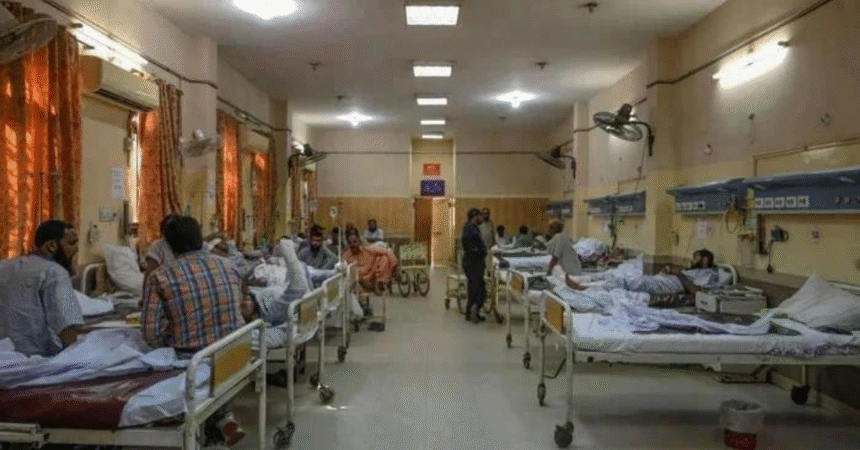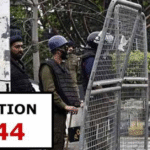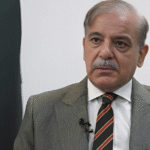In a significant public health development, Pakistan has reported its first confirmed case of Middle East Respiratory Syndrome Coronavirus (MERS-CoV). This diagnosis, which has sparked concern among health officials and the general public alike, highlights the ongoing global health challenges posed by emerging infectious diseases. The case was confirmed by the World Health Organization (WHO) and local health authorities, shedding light on the need for vigilance and preparedness in combating such threats.
- Background on MERS-CoV
- The Pakistani Patient’s Journey
- Initial Response and Confidentiality Concerns
- Contact Tracing and Public Health Measures
- Global Implications and Ongoing Concerns
- Challenges in Early Detection and Response
- Preventive Measures and Public Health Education
- The Role of International Cooperation
- The Need for Continued Vigilance
Background on MERS-CoV
MERS-CoV is a viral respiratory illness that was first identified in 2012 in Saudi Arabia. Since then, it has been reported in 27 countries, primarily affecting the Middle East. The disease is caused by a coronavirus, distinct from the one that causes COVID-19. MERS-CoV is known for its high mortality rate, estimated at approximately 36%. However, this figure can be misleading as it does not account for mild or asymptomatic cases that often go undetected.
The transmission of MERS-CoV is primarily associated with dromedary camels, which are considered a significant reservoir for the virus. Human-to-human transmission can occur, especially in healthcare settings or among close contacts, but it is relatively less common. Symptoms of MERS-CoV typically include fever, cough, and difficulty breathing, with some patients developing severe respiratory distress. The initial symptoms are often nonspecific, making early diagnosis a challenge.
The Pakistani Patient’s Journey
The Pakistani patient, a 55-year-old man from Kharian, returned to Pakistan from a Middle Eastern country on September 3, 2024. His journey back home took an alarming turn when he began experiencing respiratory issues. He was admitted to a private hospital in Jhelum on September 4 due to shortness of breath and heart-related complications. It was during his hospitalization that healthcare providers suspected a possible MERS-CoV infection after receiving alerts from health authorities in the Middle Eastern country.
Upon arrival at the hospital, the patient underwent initial assessments and treatment for his breathing difficulties. However, the clinical team was soon informed that the patient had tested positive for MERS-CoV based on laboratory samples taken prior to his departure. This revelation prompted immediate action from health authorities.
Initial Response and Confidentiality Concerns
Despite the seriousness of the diagnosis, there were initial delays in disclosing the information to the medical staff at the hospital. Local health authorities opted for confidentiality, a decision that raised concerns about the implications for patient safety and public health. The patient was subsequently transferred to Benazir Bhutto Hospital (BBH) in Rawalpindi on September 5, where he spent several days in the Intensive Care Unit (ICU).
During his time in the ICU, the medical team implemented stringent infection control measures to prevent any potential transmission to healthcare workers or other patients. Fortunately, after receiving appropriate treatment, the patient made a full recovery and was discharged, returning home to Kharian.
Contact Tracing and Public Health Measures
Following the recovery of the patient, health officials conducted extensive contact tracing. Over 40 individuals who had come into close contact with the patient were tested for MERS-CoV, all of whom tested negative. This outcome was a relief to health authorities and the community, indicating that the risk of widespread transmission had been effectively mitigated.
In response to the diagnosis, Pakistan’s health authorities implemented rigorous monitoring protocols. These included active surveillance for respiratory illnesses in healthcare settings and conducting refresher training for healthcare workers on recognizing MERS-CoV symptoms and infection prevention measures. The swift actions taken by health officials were crucial in containing the potential spread of the virus.
Global Implications and Ongoing Concerns
The confirmation of the first MERS-CoV case in Pakistan raises significant public health concerns, particularly given the ongoing global situation regarding infectious diseases. MERS-CoV, while less prevalent than other respiratory viruses, poses unique challenges due to its high mortality rate and potential for transmission among close contacts.
The WHO has been actively engaged in supporting member states in managing MERS-CoV infections. This includes updating protocols for detection, treatment, and monitoring. The organization has advised countries to maintain strong surveillance for acute respiratory infections, particularly in settings where healthcare workers may be at risk.
Despite the seriousness of the situation, health authorities have advised against imposing travel or trade restrictions related to this case. The emphasis remains on maintaining vigilance rather than instigating panic or disruption. The WHO and local health officials continue to stress the importance of public health education and community awareness in preventing the spread of MERS-CoV.
Challenges in Early Detection and Response
One of the primary challenges in addressing MERS-CoV is the nature of its symptoms, which can often resemble those of common respiratory illnesses. Early detection is critical, as delays in recognizing symptoms can lead to increased transmission, especially in healthcare settings. Human-to-human transmission has been linked to delays in implementing isolation measures, underscoring the importance of swift responses to potential cases.
Public health education plays a vital role in enhancing awareness about MERS-CoV and its associated risks. Communities must be informed about the symptoms and advised to seek medical attention promptly if they exhibit any signs of respiratory illness. Additionally, those who have traveled to regions where MERS-CoV is prevalent should be particularly vigilant about monitoring their health.
Preventive Measures and Public Health Education
In light of the confirmed MERS-CoV case, health experts are advocating for several preventive measures:
1. Public Awareness Campaigns: It is essential to educate the public about MERS-CoV, its symptoms, and the importance of early detection. Campaigns should focus on vulnerable populations and individuals with underlying health conditions, who are at higher risk for severe illness.
2. Hygiene and Infection Control: Emphasizing proper hand hygiene, respiratory etiquette, and the use of personal protective equipment (PPE) in healthcare settings can significantly reduce the risk of transmission.
3. Monitoring Animal Interactions: Given the association between MERS-CoV and dromedary camels, individuals who work with or around camels must be educated about the risks and encouraged to adopt safety precautions.
4. Training for Healthcare Workers: Ongoing training and updates for healthcare professionals are crucial in ensuring they can effectively recognize and respond to cases of MERS-CoV.
5. Surveillance and Reporting: Healthcare providers and the public must be encouraged to report unusual respiratory illnesses, allowing for rapid investigation and containment of potential outbreaks.
The Role of International Cooperation
The global nature of MERS-CoV emphasizes the importance of international cooperation in combating infectious diseases. The WHO plays a critical role in facilitating information sharing, research, and coordinated responses among member states. Collaborative efforts are essential for understanding the epidemiology of MERS-CoV and developing effective interventions.
Furthermore, countries must work together to strengthen their healthcare systems, enhance surveillance capabilities, and promote research into vaccines and treatments for MERS-CoV. As the world continues to grapple with the COVID-19 pandemic, the lessons learned can be applied to the ongoing fight against other infectious diseases, including MERS-CoV.
The Need for Continued Vigilance
As Pakistan navigates this new challenge, the importance of maintaining vigilance cannot be overstated. The emergence of the first MERS-CoV case serves as a reminder of the constant threat posed by infectious diseases and the need for robust public health infrastructure.
The proactive measures taken by health authorities in response to this case demonstrate a commitment to safeguarding public health. However, ongoing awareness and preparedness are crucial in preventing future outbreaks. As health officials continue to monitor the situation, the emphasis on community engagement and education will play a vital role in mitigating the risks associated with MERS-CoV.
A Call to Action
The confirmation of MERS-CoV in Pakistan highlights the complexities and challenges of managing emerging infectious diseases. As global health landscapes evolve, the need for coordinated efforts, public education, and a vigilant approach remains paramount. By fostering a culture of awareness and preparedness, communities can work together to reduce the risks posed by MERS-CoV and other infectious diseases.
Public health education, hygiene practices, and responsible interactions with animals will be key components in preventing the spread of MERS-CoV. The collective efforts of health authorities, healthcare providers, and the community will be critical in addressing this public health challenge effectively. As we continue to face the ongoing threat of respiratory infections, maintaining vigilance and proactive measures will be essential in ensuring the health and safety of the population.
#MERS #PublicHealth #Pakistan #RespiratoryDiseases #InfectiousDiseases #GlobalHealth #WHO #HealthAwareness #Vigilance







